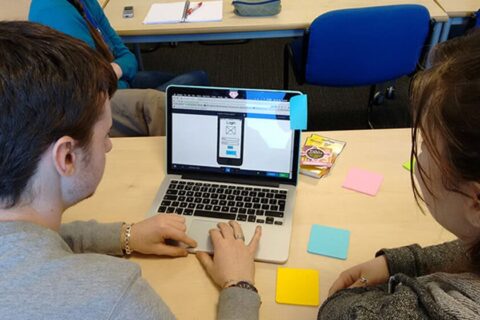Empowering adult educators to work effectively with migrants
Empowering adult educators to work effectively with migrants involves a combination of cultural understanding, sensitivity, and practical strategies. Here are recommendations to help adult educators create a supportive and enriching learning environment for migrants:
- Cultural Awareness and Sensitivity:
- Educate yourself about the cultures, backgrounds, and experiences of the migrant populations you’ll be working with.
- Avoid making assumptions or stereotypes about migrants’ experiences and perspectives.
- Language Support:
- Provide language learning opportunities that focus on practical communication skills relevant to daily life, work, and integration.
- Incorporate multilingual resources and materials to accommodate diverse language needs.
- Contextualized Learning:
- Make learning relevant by addressing migrants’ specific goals, needs, and challenges in their new environment.
- Integrate topics related to local customs, laws, and resources to help migrants navigate their new surroundings.
- Cultural Exchange:
- Foster a safe space for sharing cultural experiences and perspectives. Encourage migrants to share their traditions and stories, promoting mutual understanding.
- Trauma-Informed Approach:
- Be aware that migrants may have experienced trauma or stress due to displacement. Adopt a trauma-informed approach that emphasizes safety, trust, and empowerment.
- Community Building:
- Facilitate group activities and discussions that encourage social interaction and connections among migrants. This can help combat isolation and build a support network.
- Practical Life Skills:
- Teach essential skills for daily life, such as using public transportation, accessing healthcare, and understanding local regulations.
- Employment Preparation:
- Offer guidance on job search strategies, resume writing, interview skills, and understanding workplace culture in the new country.
- Digital Literacy:
- Provide training in basic digital skills, as digital literacy is crucial for accessing information, services, and job opportunities.
- Tailored Instruction:
- Recognize that migrants may have diverse educational backgrounds and learning preferences. Adjust your teaching methods to accommodate these differences.
- Partnerships and Resources:
- Collaborate with community organizations, language centers, and integration programs to access additional resources and support services for migrants.
- Counseling and Support:
- Connect migrants to counseling services or support groups if they are dealing with emotional or psychological challenges related to migration.
- Advocacy and Awareness:
- Use your role to advocate for policies and practices that support the integration and well-being of migrants in the community.
- Feedback and Evaluation:
- Regularly gather feedback from migrants to assess the effectiveness of your teaching methods and to make necessary adjustments.
- Continuous Learning:
- Stay updated on migration policies, cultural trends, and best practices in adult education. Attend workshops, conferences, and training programs.
Empowering adult educators to work with migrants involves a commitment to inclusivity, flexibility, and continuous improvement. By creating a welcoming and supportive learning environment, educators can help migrants successfully integrate into their new communities and achieve their personal and professional goals.




